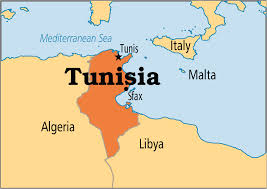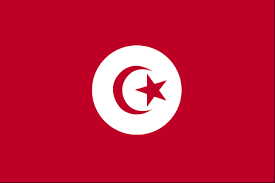
 Tunisia did it again! This small country in North Africa was the one to start the Arab Spring in December 2010. On Oct. 26 of this year, the parliamentary elections marked the return to some degree of normalcy after a difficult period of assassinations and violence.
Tunisia did it again! This small country in North Africa was the one to start the Arab Spring in December 2010. On Oct. 26 of this year, the parliamentary elections marked the return to some degree of normalcy after a difficult period of assassinations and violence.
The latest elections revealed a “collective intelligence,” to use the words of a French political scientist – the result of a well established civil society. Instead of a single party hijacking the political scene, the people voted for several parties. The liberal party Nidaa Taures won with 38 percent of the votes. In order to reach a majority of 109 seats in the parliament, it is willing to form a coalition – quite unusual in this part of the world.
The Islamist party Ennahda secured second place with only 28 percent of the votes and 69 seats — or 16 seats less than in the previous election. Wisely it conceded defeat. How to explain the resistance of the population to the Ennahda program?
The answer lies for a large part in the key role played by women. They spearheaded the resistance against the strict enforcement of the Sharia or moral code, which limits their rights in many areas: inheritance, divorce, veil and regulations on clothing, custody of children, adultery sanctioned by stoning or “honor killing,” right to travel, right to open a bank account, and access to higher education, etc.
In the text of the constitution approved in January 2014, Ennahda had reluctantly agreed to replace the expression “complementarity of men and women” by “equality for all.” A journalist had the nerve to make the following extraordinary comment, “This was a small victory for a few Tunisian feminists”.
 The “Personal Status Code,” which was installed by president Habib Bourguiba in 1956, had given empowerment to Tunisian women, thus making them the most emancipated in the Arab world. This revolution was at the center of his program in order to model his country on Kemal Ataturk’s vision of a secular and modern country. Incidentally, it is interesting to note that both Turkey and Tunisia have almost identical flags. Bourguiba is said to have remarked at one time, “… the veil – that odious rag.”
The “Personal Status Code,” which was installed by president Habib Bourguiba in 1956, had given empowerment to Tunisian women, thus making them the most emancipated in the Arab world. This revolution was at the center of his program in order to model his country on Kemal Ataturk’s vision of a secular and modern country. Incidentally, it is interesting to note that both Turkey and Tunisia have almost identical flags. Bourguiba is said to have remarked at one time, “… the veil – that odious rag.”
Tunisia can be considered to-day as a bulwark between a dangerously chaotic Libya and an Algeria unable to control terrorism (on Oct.14, a Frenchman visiting the rugged mountainous area south of Algiers, in order to train young Algerians to become mountain guides, was taken hostage and beheaded two days later.) In other words, Tunis is of great importance not only as a model of democratic process coexisting with a moderate Islam but also, one hopes, as an oasis of stability for the whole area.

About the author: Nicole Prévost Logan divides her time between Essex and Paris, spending summers in the former and winters in the latter. She writes a regular column for us from her Paris home where her topics will include politics, economy, social unrest — mostly in France — but also in other European countries. She also covers a variety of art exhibits and the performing arts in Europe. Logan is the author of ‘Forever on the Road: A Franco-American Family’s Thirty Years in the Foreign Service,’ an autobiography of her life as the wife of an overseas diplomat, who lived in 10 foreign countries on three continents. Her experiences during her foreign service life included being in Lebanon when civil war erupted, excavating a medieval city in Moscow and spending a week under house arrest in Guinea.